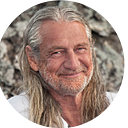How to Realize Your Relationship Goals | Mark Whitwell
In my life as a Yoga teacher I have the opportunity to form deep friendships with people from all over the world. Whether during in-person workshops or online it is beautiful to see people of different backgrounds respond to the treasures of Yoga.
Regardless if they are Middle-Eastern, American, Norwegian, Mexican, English, Indian, German, Italian, or Ugandan; whether Christian, Hindu, Muslim, Jewish, or atheist; Yoga proves to be a powerful tool for supporting any person’s life.
Indeed, my teacher Tirumalai Krishnamacharya believed Yoga to be “India’s greatest gift to the world”; a tradition and set of practices that was applicable to any person: with the caveat that any teaching must be carefully adapted to the student’s age, health, body-type and culture.
Krishnamacharya was emphatic that Yoga is not Hinduism; but rather, a wisdom tool for all religions or those without a faith.
So what is it exactly that makes Yoga so universal?
Yoga is universal because it addresses a universal need: the human need for intimacy and connection.
“Yoga is relationship,” Krishnamacharya and his son Desikachar would say, “and relationship is Peace.”
Think about it. What is the principle desire of your life?
We all want to be intimate with our tangible life: with our body, our breath, and our desires; we want to know the directions in life that are right for us and to learn how to move on them; we want to refine our pleasures and know what is authentic to us.
We all want to give and receive in close, loving relationships with friends, family, workmates and partners; we all want to participate in the life of the community; to offer ourselves up, and to share our life with another in mutual sexual connection.
And we all want to be intimate with our context: the nurturing ecologies of Mother Nature: with sun, moon, stars, air, water, light and with the plant and animal kingdoms; to know ourselves to be at one with the unified field of Life Itself, Reality, Source or what some culture’s call God.
The tradition of Yoga has evolved over thousands of years as a response to the intrinsic human need for connection; we all know that the very etymology of the word ‘Yoga’ means ‘union.’
But here’s the secret: Yoga is not about getting connected as if we are separate.
Rather, Yoga is a refined method of participation in the relatedness to Life that is already the case. In Yoga, we begin from the recognition that we are already at One with the cosmos; that we are already held within the nurturing womb of Mother Nature; that our bodies are already functioning in a profound harmony with sunlight, air, water, food, and all human others; and that our hearts are already flowing.
During workshops, I like to ask the room, “Is anybody here not at one with Life?”
You have to admit that is already true of you!
So Yoga is not a struggle to get connected, but a beautiful and easy embrace of the connectedness that is our born-condition.
The principle action is asana and pranayama; or, coordinated moving and breathing; sublime intimacy with body and breath. When we are intimate with our embodiment we very naturally feel our embodiment’s intrinsic connection to all tangible and intangible conditions of Life.
“Body, breath, and relationship — in that order” Krishnamacharya taught.
This body is a profoundly receptive mechanism. We enjoy on the inhalation the descent of feeling through the crown and front of the right down to the body base. On the exhalation, we enjoy the ascending energy of strength that moves from the body base, up the spine, supporting the soft crown and the receptive function of the body-front.
When the twin qualities of receptivity and strength are given room to function, our relational life is empowered in a beautiful way.
Now, you might be wondering why we need to practice in the first place if we are already at One with Life and each other.
We have to acknowledge the obstructions and trauma that has been put on humanity through thousands of years of patriarchy. The feeling capacity of our bodies, our dependency on one another and the natural systems that support life, the inescapable facts of birth, sex and death, our need for sexual intimacy, have been denied. As a result, our ease in relationship has been made complicated and painful.
Relationship has been denied in the name of the ‘higher ideals’ of patriarchal culture: whether through religious idealisms of disincarnate spirituality and celibacy or through the secular obsession with money, career, sport, politics and the vulgarity of pornography, we have inherited a vast dysfunction that obstructs our natural state of giving and receiving in mutual relationships of all kinds.
Yoga is a profound intervention into the anti-relational culture of patriarchy. When we take up a daily Yoga practice that is right for us we are choosing a life of connection, love and mutuality — we are choosing a natural life.
Everywhere people are responding to the physical wisdom practices that came through Tirumalai Krishnamacharya (1888–1989). The initial excitement of the partial teachings that Iyengar and Jois brought to the West is wearing off.
People are seeking out the actual principles of practice that the ‘teacher of the teachers’ taught: the principles that make Yoga ‘Yoga’ — namely, an utter focus on the breath as the very purpose of asana.
The way out of the patriarchal patterning that has gripped humanity for thousands of years is through the physical practices of intimate connection. May these treasures of culture continue to spread.
*Join us in the heart of Yoga online studio to continue the conversation and learn an actual Yoga practice that is your direct embrace of your related condition.
